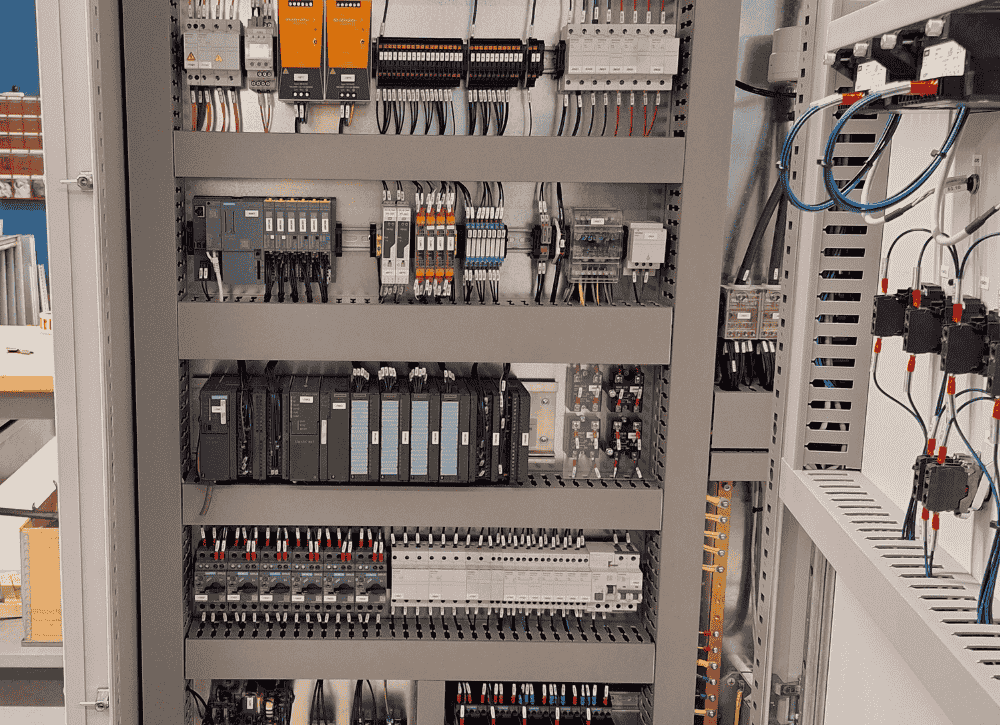Industrial Automation Control Systems

Introduction to Control Systems
Control systems dedicated to industrial automation represent the core of technological innovation, managing and regulating machinery and production processes. These systems enable real-time monitoring, management, and optimization of operations, ensuring greater efficiency, reliability, and safety.
The primary goal of control systems is to ensure that every phase of the production process operates within the established parameters, minimizing errors and improving overall performance.
Types of Control Systems for Industrial Automation
- Open-Loop Control
In an open-loop system, the control action does not depend on the process output. This type of control is simple and suitable for repetitive operations where external conditions remain constant. - Closed-Loop Control (Feedback)
In a closed-loop system, control is based on feedback from the process. This allows the system to correct deviations in real time, ensuring more precise and reliable results. - PLC (Programmable Logic Controller)
PLCs are programmable devices used to manage and automate complex industrial processes. They offer high reliability, resistance to harsh environmental conditions, and remarkable programming flexibility. - DCS (Distributed Control System)
DCS systems are designed to control complex and distributed processes. They enable the management of multiple operating units through a centralized network, ensuring greater efficiency and coordination. - SCADA (Supervisory Control and Data Acquisition)
SCADA systems allow real-time monitoring and control of industrial plants. They provide real-time data, graphical representations, and alarms to improve decision-making processes.
Advantages of PLC Integration by opus automazione
- Productive Efficiency:
By automating processes, time and resources are optimized, increasing overall productivity. - Precision and Reliability:
Control systems ensure consistent, error-free operations. - Real-Time Monitoring:
They allow immediate detection and correction of any process anomalies. - Energy Optimization:
By managing parameters efficiently, they reduce energy consumption and enhance sustainability.
Risk Reduction in Operations
Implementing advanced control systems reduces risks related to:
- Human Errors:
By automating processes, errors caused by distraction or fatigue are eliminated. - Failures and Malfunctions:
Continuous monitoring enables timely intervention in case of anomalies. - Operational Safety:
These systems reduce operator exposure to hazardous conditions, ensuring a safer working environment.
Our Solutions for Control Systems
Opus Automazione designs and implements customized control systems tailored to the specific production needs of each client. From initial consulting to installation and maintenance, we provide reliable and innovative solutions, ensuring high performance and continuous technical support.
Partner with us to optimize your industrial processes and enhance your company’s competitiveness.
What Our Service Includes
We Take Care of Everything, from A to Z
We have designed our service process to ensure maximum simplicity, allowing our clients to focus fully on other strategic aspects of their business while we take care of everything else.
Feasibility Analysis & Study
Design & Technical Development
Construction & Assembly
Testing & Validation
Installation & Training
Contact Us for a Customized Quote
Tailored solutions for the specific needs of your industry.
Our experts are ready to support you at every stage.
Customized solutions for every industrial sector.
Dedicated consulting for each phase of the project.
Specialized and ongoing technical support.
Technological innovation to improve operational efficiency.
